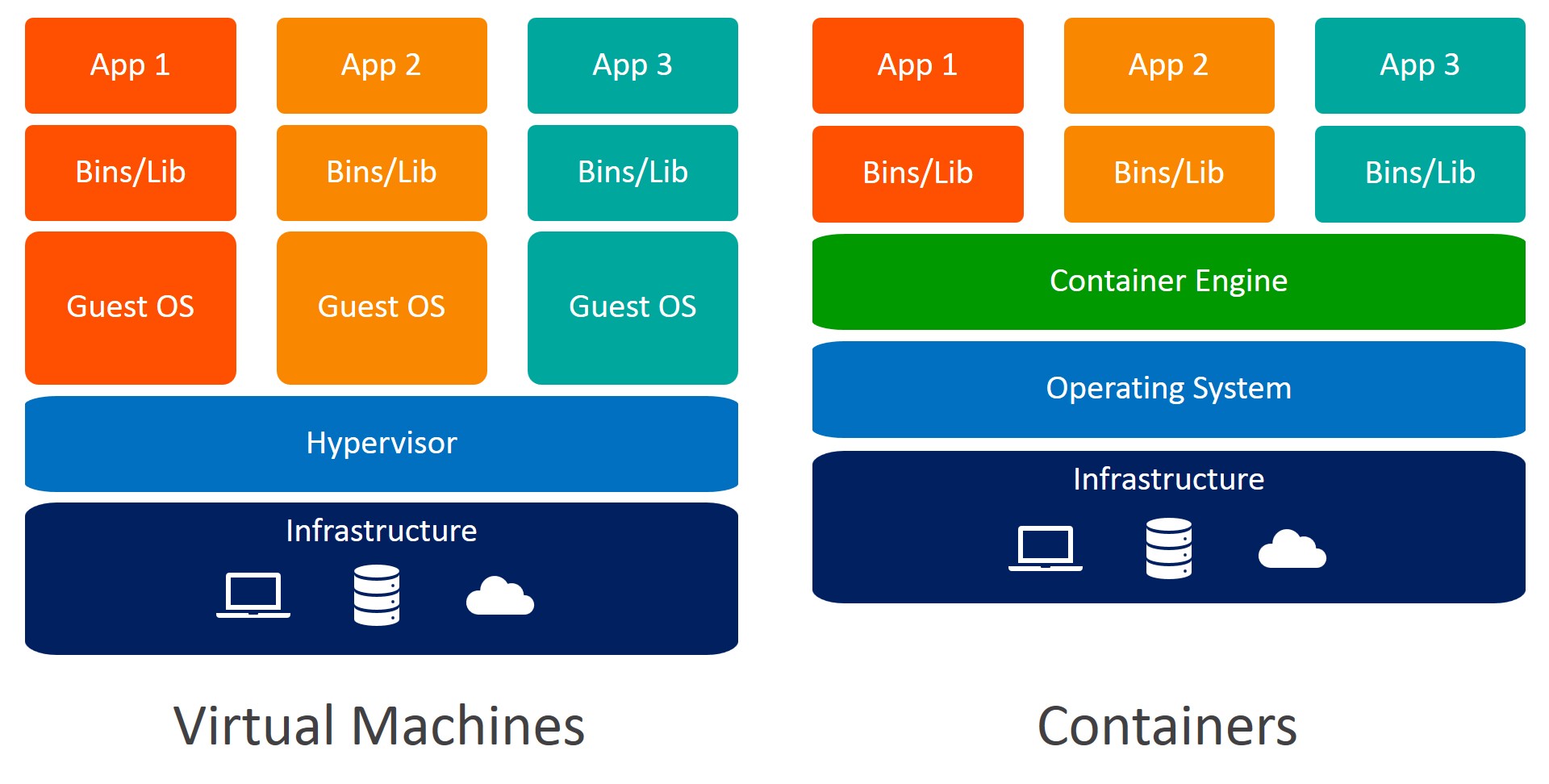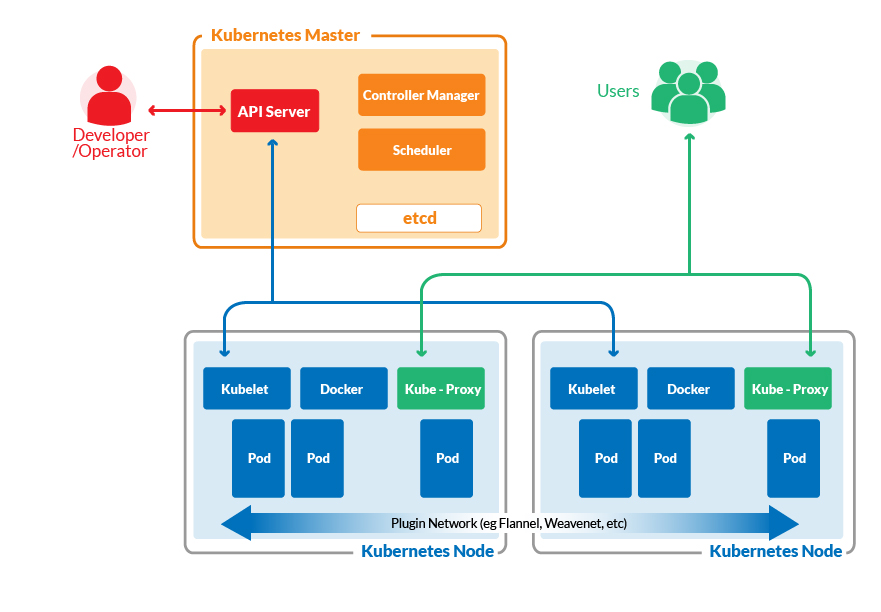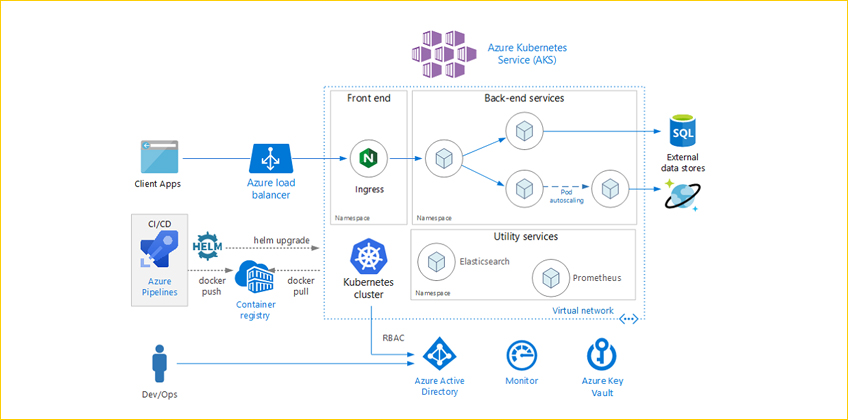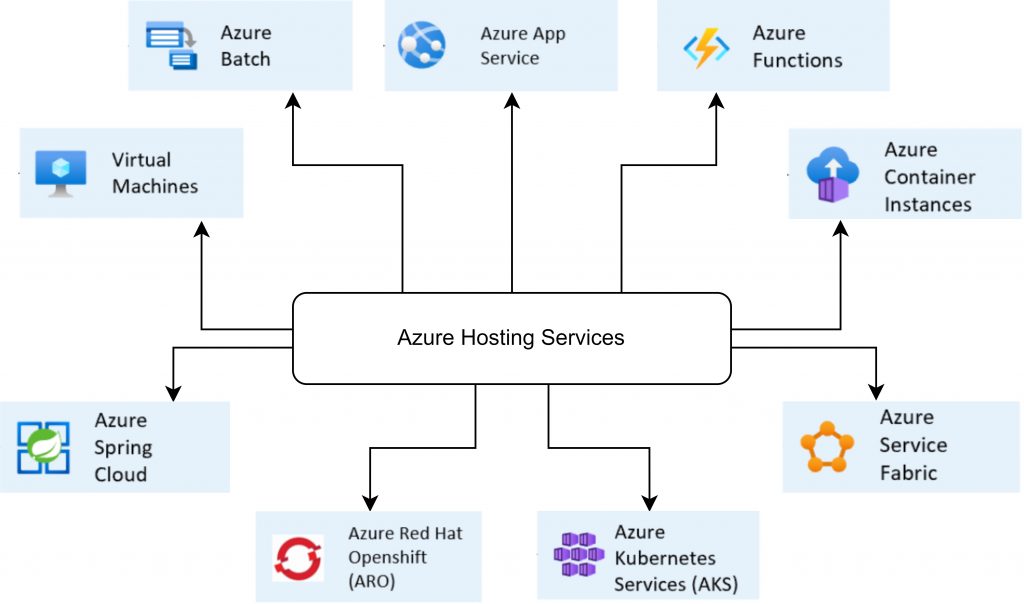Azure Container Apps: An Overview
Azure Container Apps is a fully managed platform designed to simplify the process of building, deploying, and scaling containerized applications. Developed by Microsoft, this service is part of the Azure ecosystem, offering seamless integration with other Azure services. By utilizing Azure Container Apps, organizations can benefit from reduced operational overhead, enabling teams to focus on application development rather than managing infrastructure.
As a container orchestration solution, Azure Container Apps handles critical tasks such as resource allocation, load balancing, and health monitoring. This allows developers to deploy applications quickly and efficiently, while also ensuring high availability and resilience. Moreover, Azure Container Apps offers a simplified management experience, with user-friendly interfaces and APIs that make it easy to configure and maintain applications.
One of the key advantages of Azure Container Apps is its ease of use compared to other container orchestration platforms, such as Kubernetes. Azure Container Apps abstracts away much of the complexity associated with managing containers, making it an ideal choice for developers who want to leverage the benefits of containerization without the steep learning curve often associated with more advanced systems.
Kubernetes: A Powerful Container Orchestration Solution
Kubernetes is an open-source container orchestration system designed to automate application deployment, scaling, and management. With its origins in Google’s internal infrastructure, Kubernetes has gained widespread popularity and extensive community support. Its flexibility, scalability, and robust feature set have made it a go-to solution for organizations seeking to manage containerized applications in complex environments.
As a highly customizable platform, Kubernetes allows users to define and manage the resources required for their applications, including compute, storage, and network resources. This flexibility enables organizations to tailor their container orchestration environments to meet specific performance, security, and compliance requirements. Furthermore, Kubernetes offers a rich ecosystem of tools and plugins, allowing teams to extend and enhance its functionality according to their needs.
However, Kubernetes’ flexibility and customization capabilities come at the cost of increased complexity. Users often face a steep learning curve when adopting Kubernetes, requiring a deep understanding of its concepts and components to effectively manage and maintain applications. This complexity can lead to operational overhead and may deter teams with limited experience in container orchestration from adopting Kubernetes as their preferred solution.
Key Differences: Azure Container Apps vs. Kubernetes
Azure Container Apps and Kubernetes cater to different needs and priorities in the container orchestration landscape. By understanding their main differences, organizations can make informed decisions about which platform best suits their requirements.
- Ease of use: Azure Container Apps offers a more user-friendly experience than Kubernetes, with a simplified management interface and reduced operational overhead. This makes it an ideal choice for developers who want to focus on application development rather than managing infrastructure.
- Scalability: Kubernetes is highly scalable, allowing users to define and manage resources according to their needs. However, Azure Container Apps also provides scalability features, making it a suitable option for applications with less complex scaling requirements.
- Cost: Azure Container Apps offers a fully managed solution, which can result in lower costs compared to Kubernetes, especially for teams without the expertise to manage and optimize their Kubernetes infrastructure.
- Customization: Kubernetes is highly customizable, enabling users to tailor their container orchestration environments to meet specific performance, security, and compliance requirements. Azure Container Apps, on the other hand, offers a more opinionated approach, with less flexibility in customizing the underlying infrastructure.
When to Choose Azure Container Apps Over Kubernetes
Azure Container Apps offers several advantages that might make it a better fit than Kubernetes in certain scenarios. Here are some situations where Azure Container Apps could be the preferred choice:
- Managed solution: Azure Container Apps is a fully managed platform, which means that Microsoft handles the underlying infrastructure, updates, and maintenance. This can be particularly appealing to developers who want to focus on application development rather than managing infrastructure.
- Limited Kubernetes expertise: If your team is new to container orchestration or lacks extensive Kubernetes expertise, Azure Container Apps can provide a more accessible and user-friendly experience. This can help reduce the learning curve and accelerate application development.
- Reduced operational overhead: Azure Container Apps can help teams reduce operational overhead by handling tasks such as resource allocation, load balancing, and health monitoring. This can lead to cost savings and increased productivity.
- Integration with Azure services: If your organization is heavily invested in the Azure ecosystem, Azure Container Apps offers seamless integration with other Azure services, such as Azure Functions, Azure Kubernetes Service (AKS), and Azure Event Grid. This can simplify application development and management.
When to Opt for Kubernetes Instead of Azure Container Apps
While Azure Container Apps offers several advantages, Kubernetes remains a powerful and flexible container orchestration solution that might be more suitable in certain situations. Here are some scenarios where Kubernetes could be the preferred choice:
- Existing Kubernetes infrastructure: If your organization has already invested in Kubernetes infrastructure, migrating to Azure Container Apps might not be the best decision. Instead, you can leverage your existing expertise and infrastructure to manage and scale your applications.
- High customization requirements: Kubernetes provides extensive customization capabilities, enabling users to tailor their container orchestration environments to meet specific performance, security, and compliance requirements. If your organization requires high customization, Kubernetes might be a better fit.
- Specific performance requirements: Kubernetes offers fine-grained control over resource allocation and management, making it suitable for organizations with specific performance requirements. For example, if you need to optimize resource utilization, fine-tune resource quotas, or enforce resource limits, Kubernetes provides the necessary tools and features.
- Security requirements: Kubernetes offers advanced security features, such as network policies, role-based access control, and secret management. If your organization has stringent security requirements, Kubernetes might be a more suitable choice than Azure Container Apps.
Real-World Use Cases: Azure Container Apps vs. Kubernetes
Both Azure Container Apps and Kubernetes have been successfully implemented in various real-world scenarios. Here are some examples of companies and projects that have chosen one platform over the other:
- Azure Container Apps use case: A startup focused on developing a cloud-native application for real-time data processing chose Azure Container Apps for its fully managed solution. The team appreciated the simplified management, reduced operational overhead, and seamless integration with other Azure services. As a result, they were able to accelerate application development and deployment, focusing on their core business instead of managing infrastructure.
- Kubernetes use case: A large enterprise with an extensive microservices architecture and a dedicated DevOps team opted for Kubernetes to manage its containerized applications. The organization required high customization, fine-grained resource management, and advanced security features. By implementing Kubernetes, the enterprise was able to meet its performance, security, and compliance requirements while maintaining control over its infrastructure.
How to Migrate from Kubernetes to Azure Container Apps
Migrating from Kubernetes to Azure Container Apps can offer several benefits, such as reduced operational overhead and simplified management. However, the transition process might present some challenges. Here are some best practices and tools to facilitate a smooth migration:
- Assess your application landscape: Before migrating, evaluate your current application landscape and identify applications that are suitable for Azure Container Apps. Consider factors such as resource requirements, customization needs, and security requirements.
- Choose the right migration tools: Azure offers several tools and services to assist with the migration process. For instance, the Azure Migrate tool can help assess and migrate applications to Azure Container Apps. Additionally, the Azure Kubernetes Service (AKS) provides tools for migrating Kubernetes workloads to Azure.
- Plan for data migration: If your applications store data, plan for data migration accordingly. Azure provides various data migration tools and services, such as Azure Data Factory and Azure Database Migration Service, to help transfer data to Azure storage solutions.
- Test and validate: Before fully migrating, test and validate your applications in a staging environment to ensure they function as expected. Address any issues or inconsistencies before deploying to production.
- Monitor and optimize: After migration, continuously monitor and optimize your applications to ensure they perform optimally in the Azure Container Apps environment. Utilize Azure Monitor and Azure Log Analytics to gain insights into application performance and identify areas for improvement.
Future Trends: Azure Container Apps and Kubernetes
The containerization landscape is continuously evolving, with both Azure Container Apps and Kubernetes adapting to meet the changing needs of organizations. Here are some future trends and developments to keep an eye on:
- Increased abstraction: As containerization becomes more accessible to developers without extensive DevOps expertise, expect to see increased abstraction in both Azure Container Apps and Kubernetes. This trend will enable developers to focus more on application development and less on infrastructure management.
- Integration with serverless architectures: The boundaries between container orchestration and serverless architectures are becoming increasingly blurred. Both Azure Container Apps and Kubernetes are likely to provide better integration with serverless technologies, enabling developers to build and deploy applications using a mix of containerized and serverless components.
- Enhanced security features: Security remains a top priority for organizations adopting containerization. Both Azure Container Apps and Kubernetes are expected to introduce more robust security features, such as improved network segmentation, advanced authentication and authorization mechanisms, and enhanced secret management.
- Improved observability and monitoring: With the growing complexity of containerized applications, observability and monitoring become even more critical. Expect both platforms to provide better insights into application performance, resource utilization, and potential issues, helping developers to optimize and troubleshoot their applications more effectively.






